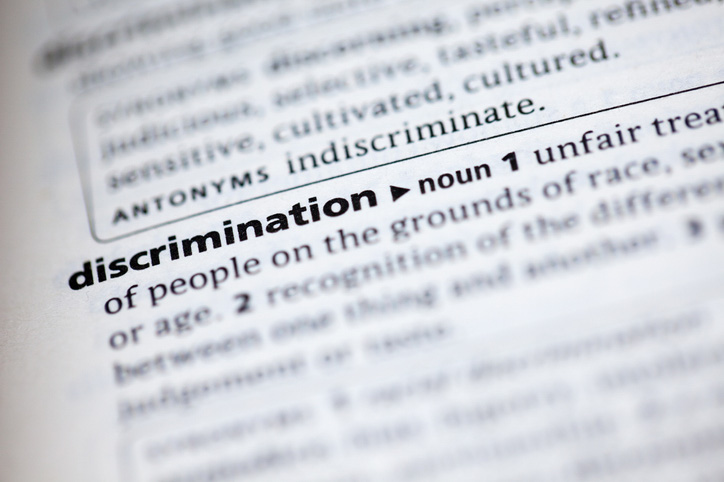New York State Expands Workplace Harassment Protections (Again)
August 19, 2019
Several states are expanding employee workplace discrimination and harassment protections amidst the tightening grip of the #MeToo and Times Up Movements, and New York State has now taken the lead. In 2018, New York passed several laws aimed at expanding workplace sexual harassment protections, including mandatory sexual harassment training and written policy requirements; the imposition of liability for sexual harassment of non-employees, including contractors, subcontractors, vendors, and consultants; banning mandatory arbitration clauses for sexual harassment claims; and imposing limitations on the use of nondisclosure clauses in sexual harassment settlement agreements, including giving the settling employee 21 days to consider the clause and 7 days to revoke it.
On Monday, August 12, 2019, Governor Andrew Cuomo signed another game-changing discrimination bill (S6577, A8421) into law. The new law expands the reach of the 2018 protections to all forms of discrimination and harassment (not just sexual harassment). Effective October 11, 2019:
- Employers will not only be liable for sexual harassment of non-employees (including independent contractors), but for any unlawful harassment and discrimination against non-employees;
- Mandatory arbitration will be prohibited for all claims of discrimination, harassment, or retaliation;
- All non-disclosure agreements will need to include language stating that employees may still file a complaint of harassment or discrimination with a state or local agency and testify or participate in a government investigation; and
- The 21-day waiting period and 7-day revocation period limits on nondisclosure clauses will apply to settlement agreements resolving not only sexual harassment claims, but all claims of harassment and discrimination.
Most notably, the new law also radically eases the burdens on employees who seek to advance claims against their employers and eliminates valuable tools that employers once had at their disposal to avoid liability. Also effective on October 11, 2019, it will be more difficult for employers to defend against harassment claims under the New York State Human Rights Law (“NYSHRL”) in the following ways:
- To be actionable, the harassing conduct no longer needs to be sufficiently “severe or pervasive” and must only amount to more than “petty slights or trivial inconveniences.” Before, hostile work environment harassment was only actionable under the NYSHRL if it was “severe or pervasive” enough to alter the conditions of one’s employment. The new law expressly eliminates the “severe or pervasive” standard and will make it unlawful to engage in any practice of subjecting an employee to “inferior terms, conditions or privileges of employment” because of his/her membership in a protected class, “regardless of whether such harassment would be considered severe or pervasive under precedent applied to harassment claims.” The law does, however, provide an affirmative defense to hostile work environment claims where the employer can show that the “conduct does not rise above the level of what a reasonable victim of discrimination with the same protected characteristics would consider petty slights or trivial inconveniences.”
- Elimination of the Faragher/Ellerth Affirmative Defense. The Faragher/Ellerth affirmative defense generally provided a safe harbor for employers who had policies and procedures to prevent and address harassment that the employee did not utilize. The new law makes clear that, “[t]he fact that [the employee] did not make a complaint about the harassment to [the] employer . . . shall not be determinative of whether such employer . . . shall be liable.”
- Comparator evidence is not required. To the extent that prior law suggested a requirement that employees advancing claims of harassment produce evidence that co-workers who were not members of the same protected class were treated better, the new law expressly eliminates it: “Nothing in this section shall imply that an employee must demonstrate the existence of an individual to whom the employee’s treatment must be compared.”
In addition, effective February 8, 2020, the NYSHRL will apply to all employers regardless of size (whereas before, it only applied to employers with 4+ employees), and effective August 12, 2020, the statute of limitations to file claims under the NYSHRL will be extended from 1 year to 3 years. New York employers must also remember to provide a copy of their sexual harassment policies to employees in English and each employee’s primary language.
Complying and keeping up with New York State’s ever-evolving workplace discrimination and harassment reforms can be tricky. For strategies your company can use, please contact Harris S. Freier, Esq., Partner in the firm’s Employment Litigation Practice Group, at hfreier@genovaburns.com, or Dina M. Mastellone, Esq., Chair of the firm’s Human Resources Practice Group, at dmastellone@genovaburns.com.
Tags: #metoo • Employment Law & Litigation • Genova Burns LLC • Human Resources Counseling & Compliance • sexual harassment • Justine L. Abrams • Discrimination • Harassment • New York • Dina M. Mastellone • Harris S. Freier • NYSHRL • workplace discrimination

